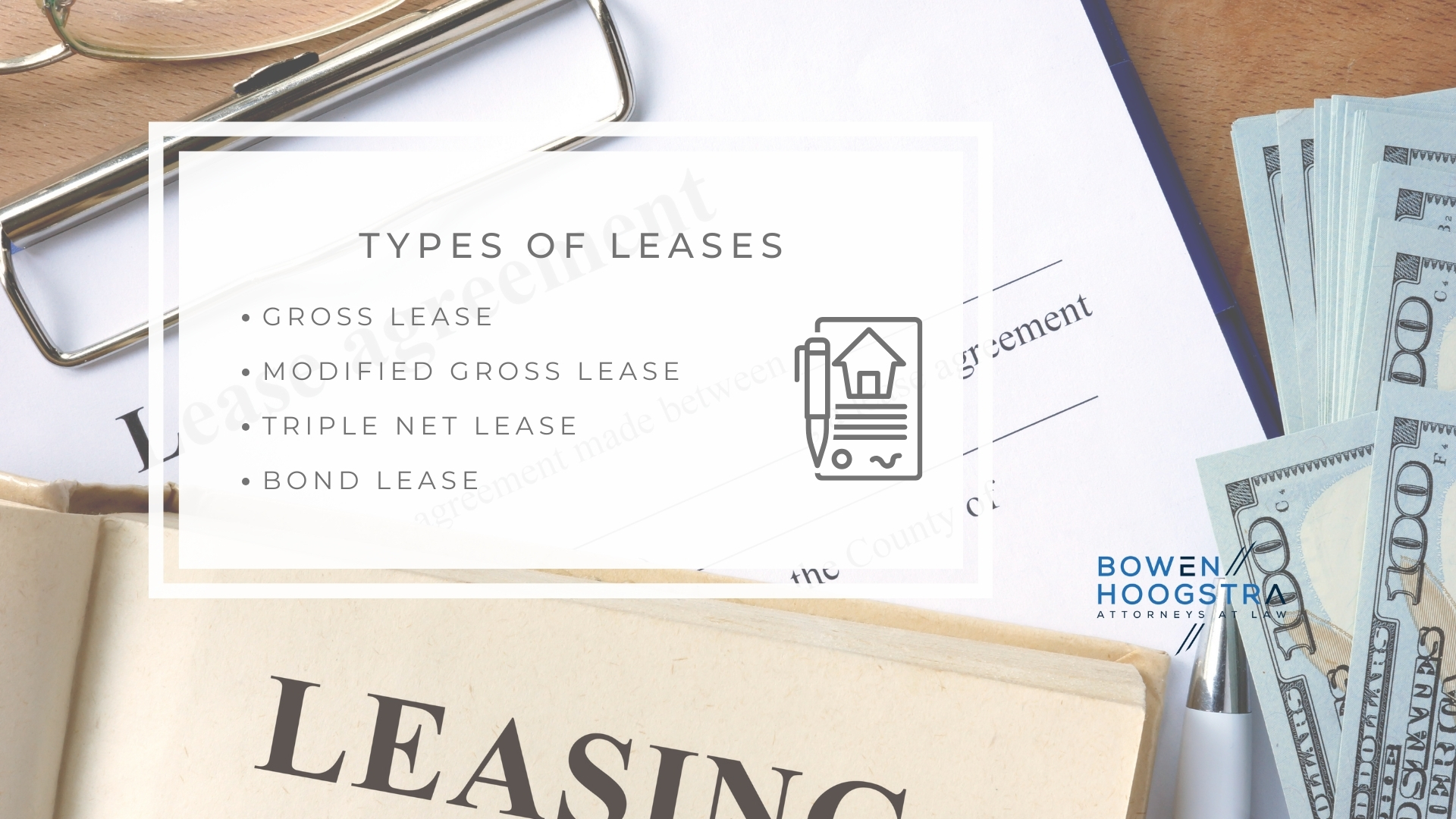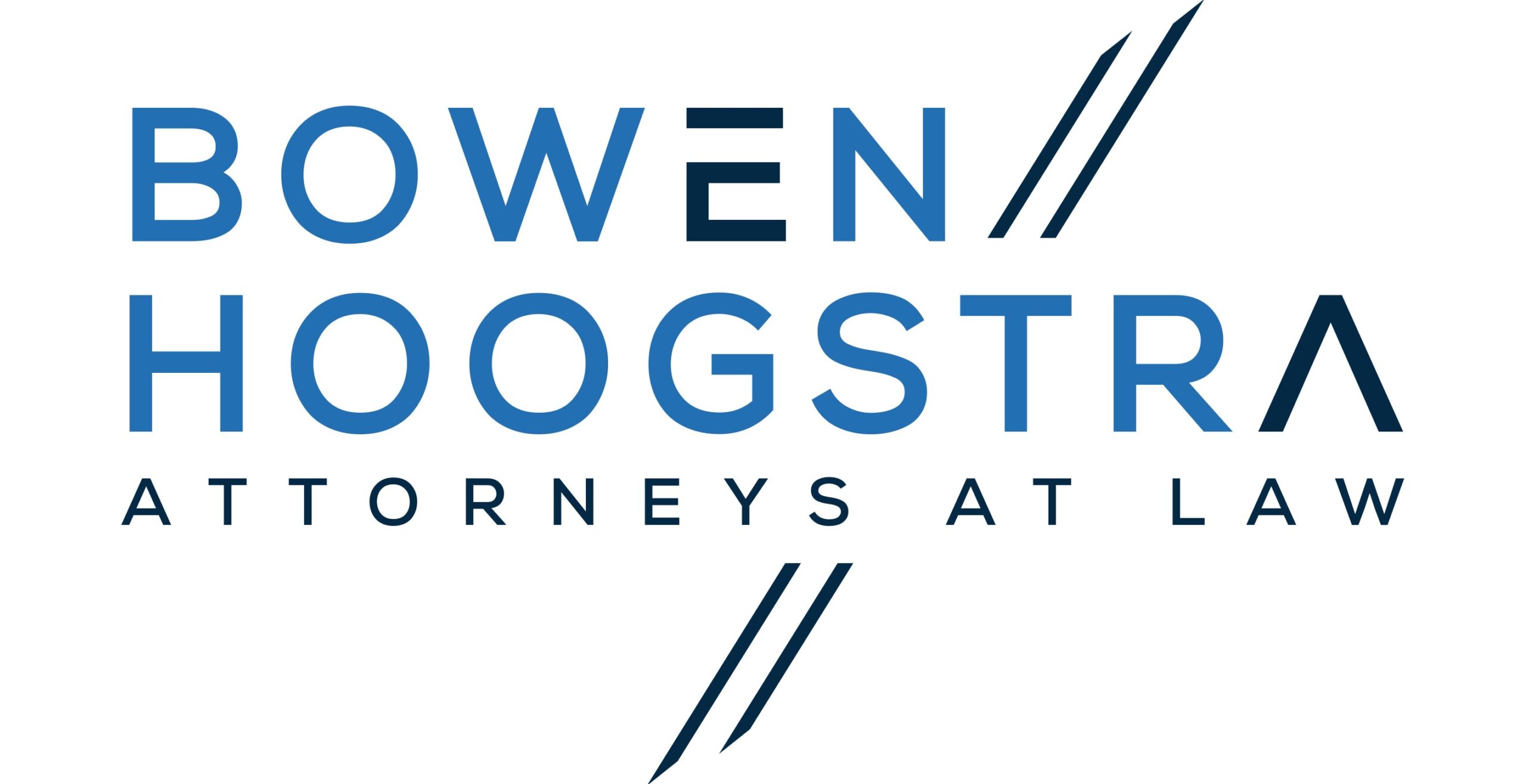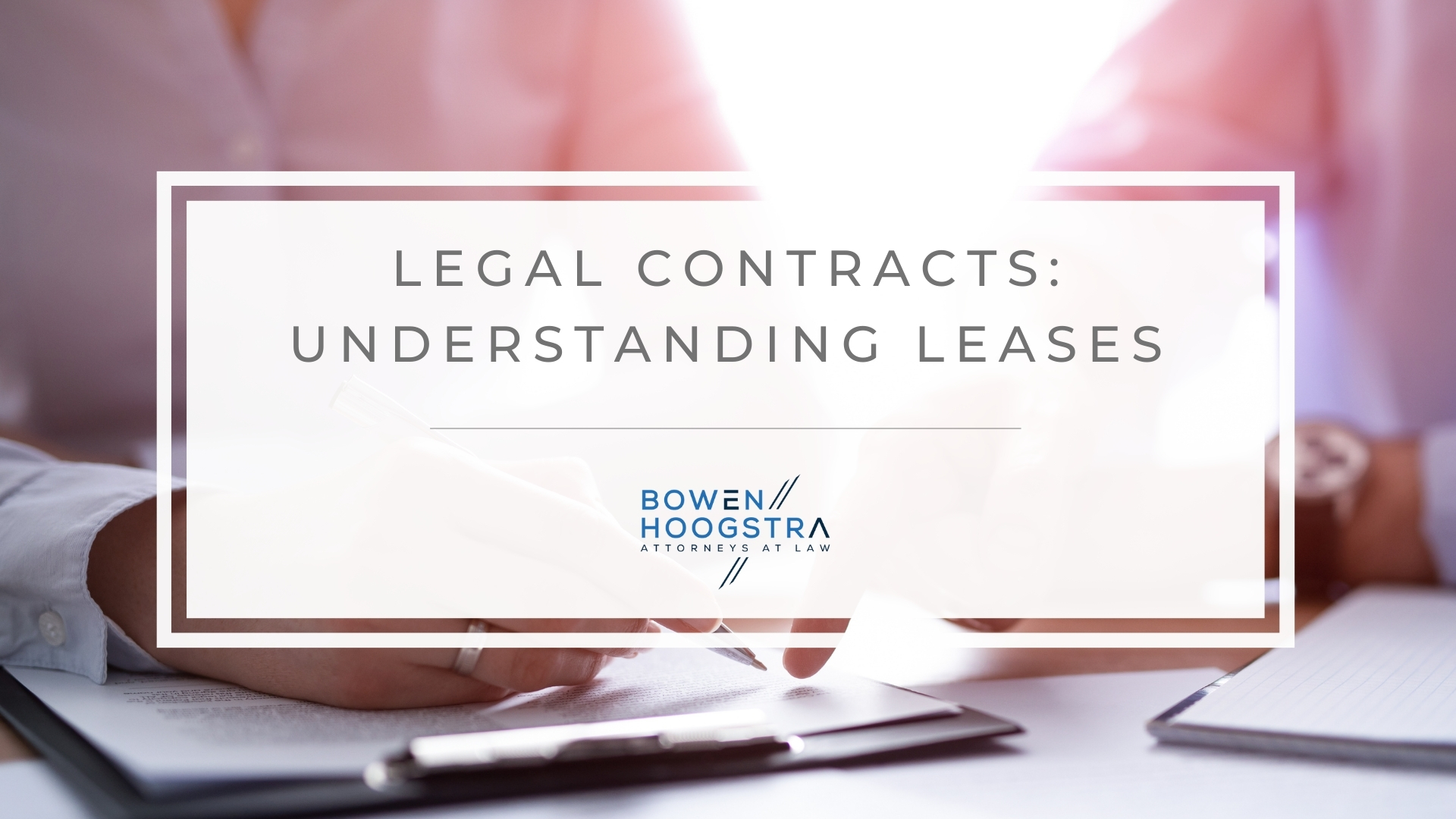- What Is a Lease?
- Types of Leases
- Lease Vs. Rental Agreement
- Commercial Vs. Residential Lease
- Essential Elements of a Lease in Michigan
- Can a New Owner Terminate a Commercial Lease?
What Is a Lease?
A lease is a written agreement where one party rents property or land for a specified duration in exchange for a periodic payment to another party. This contract provides financial security for the landlord and makes it easier for both parties to refer to the agreement terms should there be any infringement.
Types of Leases
Gross Lease
In a gross lease, the tenant agrees to pay the landlord a flat rental fee so the tenant can have exclusive use of the property. Operating expenses associated with property ownership, like utilities, taxes, insurance, and maintenance, are included in the fee. A gross lease can be changed to meet the tenant’s requirements and is common practice in the commercial property rental market.
Modified Gross Lease
A modified gross lease involves a payment structure where both the tenant and landlord pay for the property’s operating expenses. Negotiations between the parties and the prevailing market conditions could change the specifics of who pays what. On top of that, the tenant also has to pay the base rent.
You should read the lease agreement thoroughly to know your responsibilities and the other party’s.
Triple Net Lease
A triple net lease, also called NNN, is a lease agreement where the tenant shoulders all of the property expenses plus the base rent and utilities. This type of lease is common in commercial real estate and is popular among investors because of its low-risk and steady-income nature.
The tenant’s rent is usually lower under triple net leases because they assume expenses that should otherwise be shouldered by the property owner.
Bond Lease
A bond lease is a form of triple net lease where the tenant is responsible for every real estate risk on the property. The tenant also shoulders all property-related expenses incurred during condemnation or material casualty, including acts of God. Tenants under a bond lease can’t seek rent discounts and aren’t even allowed to terminate the agreement.

Lease vs. Rental Agreement
A lease is a written agreement that details the contract’s terms, such as the period covered and the monthly cost of the rent. It is structured for long-term occupancy and provides the landlord with a stable rental income stream. However, since the rent is set in stone until the agreement ends, the property owner may lose incremental income whenever the property’s market value increases.
Meanwhile, a rental agreement is a short-term contract that is either a verbal or written agreement, usually on a month-to-month basis. Both parties can make as many amendments or changes to the agreement between each period. The main disadvantage, though, is having no fixed duration on how long the tenant will stay at the property.
Commercial vs. Residential Lease
A commercial lease applies to commercially zoned properties and provides details on the different uses of the said property. It’s often intended for business use and outlines the types of businesses that may be conducted within the property.
Meanwhile, a residential lease is intended to give property rights that guarantee safe living conditions for the tenant. Hence, it has various legal protections you won’t see in a commercial contract.
Essential Elements of a Lease in Michigan
Parties to the Lease
Every lease agreement must contain the lessee (tenant) and the lessor’s (landlord) names. If a company is renting the property, it must use the business’ full legal name and designation (LLP, LLC, Corporation, etc.).
Premise Clause
This element provides crucial information regarding the lessor leasing property to the lessee. It describes the rented space, location, and other details related to the land or property.
Rent Clause
The lease must mention the monthly rent and a breakdown of the operating expenses related to the property. It should also clearly explain how the base rent and percentage rent are calculated to be legally binding. The lease may sometimes include common area expenses and tenant improvement allowances.
Term Clause
This element goes through how long the lease will be valid, whether expressed, implied, or perpetuated. It also mentions when the rent is due, together with the beginning and end dates of the lease. It should also contain the date when the business launches and their insurance if it’s a commercial lease.
Use Clause
This section details the usage of the property. If it’s a commercial lease, it must detail the tenant’s business type, the products or services they offer, and the specifics of how it will be used. Meanwhile, it can provide details about sub-leasing if it’s a residential lease.
Can a New Owner Terminate a Commercial Lease?
All new owners of commercial property must uphold the terms and conditions of any current lease agreements. If the original contract had a clause that allowed for such a move, that would be the only way they could end a lease after the transfer of ownership.
If you are from Michigan and want clarification about this topic, consult a Muskegon lawyer to help you.
Muskegon Lawyer That Can Help You
Drafting a lease contract, especially for commercial leases, isn’t easy. You have to take into account various components of the renting agreement and put them into legal writing. Hence, hiring a Muskegon lawyer who knows Michigan state law and federal law is a must.
Bowen Hoogstra Law offers various legal solutions regarding legal contracts, such as commercial and residential leases. Our attorneys have years of experience and are authoritative figures in their fields. For legal inquiries, reach us at Bowen-law.com or call (231)-726-4484.

